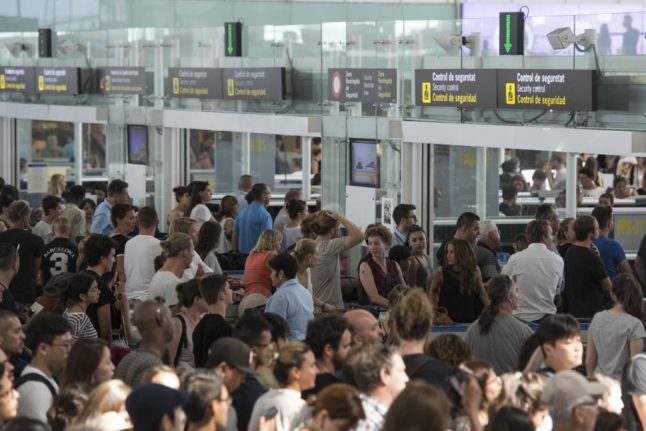One of the consequences of Brexit that British travellers have become most aware of since 2021 is how upon arrival in Spain or another EU/Schengen Area country from the UK, they now have to stand in the queue for third-country nationals.
This can hardly be considered the worst Brexit setback, but it has meant plenty of waiting around at passport control for British nationals (EU residents and tourists alike), in some cases resulting in flights being missed.
Portugal has recently made headlines by becoming the first EU nation to fast-track British travellers despite their new third-country status, opening e-gates to them at airports in Faro, Lisbon, Porto and Madeira where they can scan their passports more swiftly. Visitors from Australia, New Zealand, Singapore and Japan are also reported to be able to enjoy this travel perk in Portugal.
By contrast, doubts about entry rules for UK tourists arriving in Spain post-Brexit have been revived by what’s been happening in Gibraltar in April.
Border officials have reportedly tightened checks on some Brits entering Spain via The Rock to require proof of accommodation and enough money to pay for their stay.
These are pre-existing EU regulations which are potentially applicable to any third-country national arriving in Spain or other EU/EEA/Schengen countries, and whilst such requirements are usually down to an individual border officer’s judgement, there are no reports of it happening as frequently at Spanish airports as at the Gibraltar border.
READ ALSO: What are the reasons for being denied entry into Spain?
With this in mind, are Spanish authorities likely to soon adopt a similar system to Portugal’s to allow British nationals through more easily and with fewer checks?
There is no official comment on this on the part of the Spanish government.
However, as Spain is currently seeing a huge resurgence of its tourism numbers to pre-pandemic levels, Spain’s Airlines Association (ALA) has called for more police officers to be deployed before the summer to prevent some of the travel chaos seen at airports’ passport and security controls over the Easter holidays.
More than 3,000 passengers are believed to have missed their flights at Madrid’s Barajas airport over Holy Week as a result of the holdups at third-country nationals’ passport queues.
For ALA’s president Javier Gándara, the main issue to be resolved is that of British nationals, as “this will be the first summer with the requirement to check UK passports and the first period of normalised air traffic after the British Government eliminated all Covid restrictions”.
There is no talk yet of Britons being able to use e-gates at Spanish airports, which suggests that Spain will not be willing to contravene EU/Schengen rules, at the very least until the new entry-exit EES system that will replace passport stamping with scanning is implemented (among other changes), perhaps in late 2022.
The Entry-Exit System will fundamentally change the way border guards work 👮👮♀️
It will increase internal security and contribute to the modernisation of external border management 🛂#Frontex will play a key role in its implementation➡️https://t.co/xd8C00uY1q pic.twitter.com/HTosUvjKFD— Frontex (@Frontex) February 18, 2022
READ MORE: Passport stamp or scan? What foreigners at Spain’s borders should expect
But an increase in the border workforce will no doubt help relieve waiting times.
The number of British tourists visiting Spain has been increasing over the previous months and despite Brexit and Covid restrictions, the United Kingdom remains the main tourism market for the Spanish economy in 2022.
If Spain allows entry to unvaccinated UK tourists in the coming months, by the summer even more will be willing to come, slowly edging closer to the 18 million British holidaymakers the country welcomed in 2019.



 Please whitelist us to continue reading.
Please whitelist us to continue reading.
Member comments